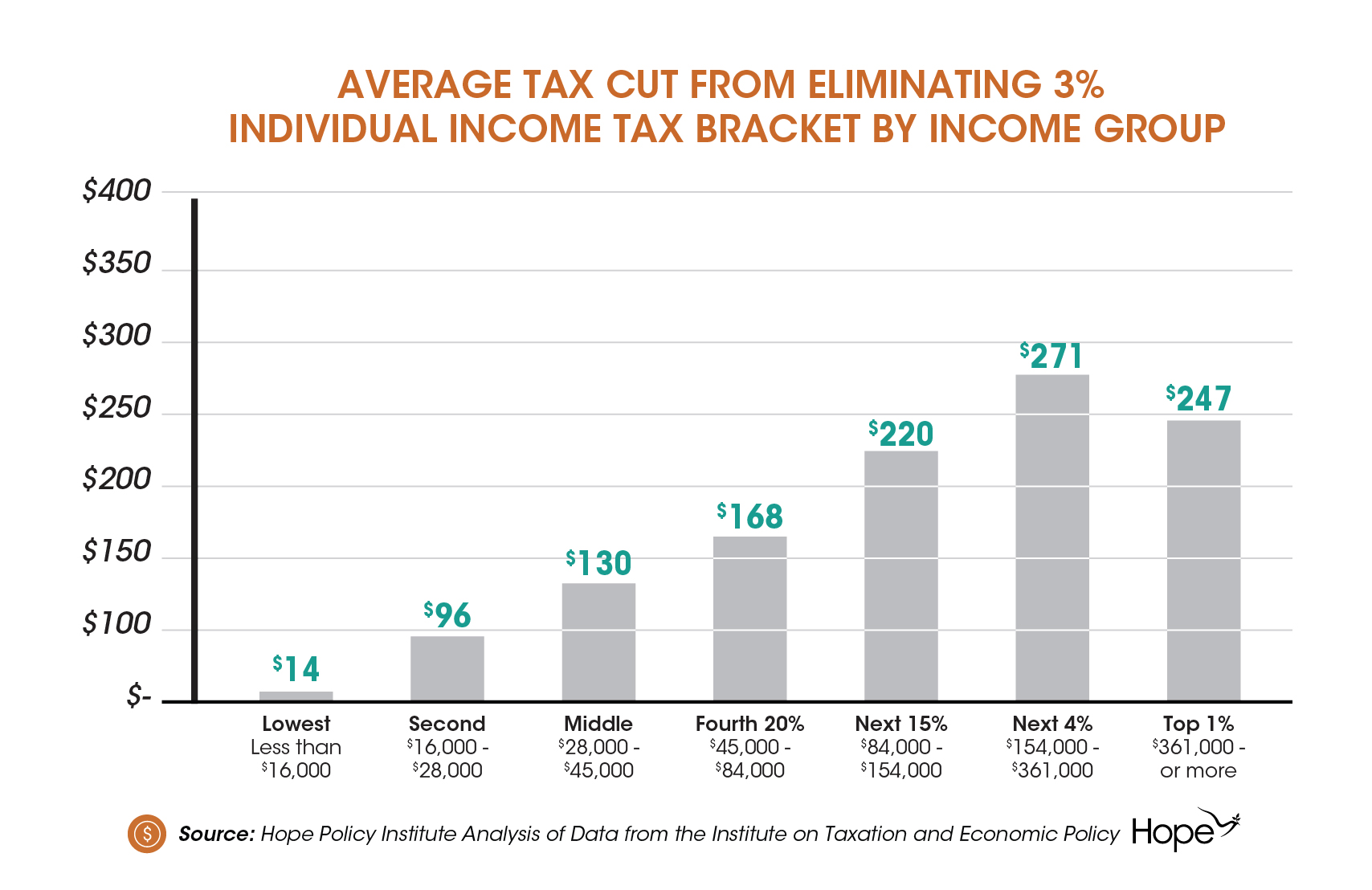Large, unaffordable tax cuts go to Governor for Consideration
April 22nd, 2016
Large, unaffordable tax cut with few benefits for working families passed by the Mississippi Legislature despite current budget crisis; Cuts go to Governor for consideration
Earlier this week, the Mississippi Legislature passed a $415 million tax cut with two-thirds of the cuts benefiting corporations. The state legislature approved this new tax cut legislation, while also reducing funding for some state agencies including budgets for mental health, community colleges, and human services. The tax cut legislation, that now moves to Governor Phil Bryant who can sign them into law or veto them, includes:
- Elimination of the 3 percent individual and corporate income tax bracket over five years beginning in the 2018 tax year: This means that all income taxpayers would pay zero on their first $5,000 in taxable income when fully phased-in. However, many low-income working families, who often file using standard exemptions and deductions (about $20,000 for a family of four), would have to earn over $25,000 to see a benefit from the tax cut. Low-income working families often don’t owe much in income taxes; yet, pay a large portion of their income in state and local taxes (mostly sales, property and gasoline taxes) than wealthier families. The chart shows how the individual income tax cut will affect households at different income levels.
- Elimination of the corporate franchise tax over 10 years beginning with the 2018 tax year: This cut, when added to the corporate income tax cut above, will mean that more than two-thirds of the total tax cut will benefit corporations. The franchise tax accounts for 44 percent of corporate tax collections. Paired with the income tax cut, the elimination will allow 75 percent of corporations in Mississippi to pay no corporate taxes once the plan is fully implemented.
- Allow an income tax deduction for self-employment taxes paid: This will allow persons who pay federal self-employment taxes (i.e., for Social Security and Medicare) to deduct up to 50% from of the amount they paid in from their state taxable income, once fully phased in over 3 years.
Many other states that have enacted big tax cuts have found that they have not delivered on promised job growth. In fact, many of these states experienced negative job growth and slower growth in the state’s GDP than the national average. Additionally, these states were not facing a budget crisis when they implemented the cuts. Mississippi is currently dealing with a revenue shortfall for the current year projected to total more than $146 million by the year’s end. As a result, the current budget has already gone through two rounds of mid-year cuts, the likes of which our state hasn’t seen since the Great Recession.
With Mississippi’s current budget struggling due to lower than expected revenue projections, the tax cut package passed by the state legislature if signed by the Governor would take Mississippi in the wrong direction. Mississippi’s weaknesses lie in the fact that we haven’t maintained public investments in efforts that would make our economy strong. These cuts will further hurt our ability to do that.
Follow us on Facebook, Twitter and sign up for our newsletter to stay up to date on latest tax and budget issues in Mississippi.







